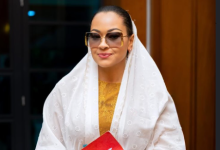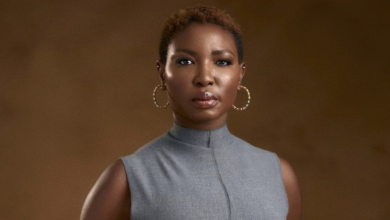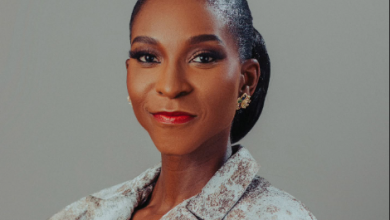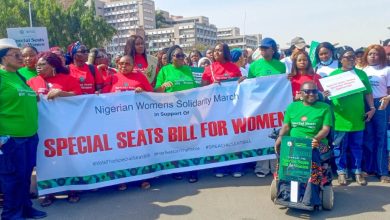Involve authorities, not police, in a fight against girl-child sexual abuse– Chiamaka David

|
Getting your Trinity Audio player ready...
|
Sexual abuse of children is the involvement of a child in sexual activity that he or she does not understand, cannot give informed consent to, or for which the child is not developmentally prepared, or that violates the laws or social taboos of society, the National Library of Medicine denotes.
With UNICEF highlighting that one in four Nigerian girls and one in 10 Nigerian boys have been sexually abused based on a 2014 study, citizens and organisations alike look to combat this menace.
Chiamaka David, a 23-year-old interior designer and economist, advised that anyone who witnesses child abuse should intervene unafraid. “Fear is just an illusion,” Chaimaka said. Do not project fear onto victims; your energy may rub off on them.”
She also encourages people to try a relationship with perceived victims. “Let them get comfortable, reassure them, listen to them, encourage them and most importantly, believe them,” Chiamaka said.
Having done so herself in July of 2023, Chiamaka narrated her experience:
In the mid-last year, June/July to be precise, I had this friend, a 12-year-old girl, in my old house. She was a house helper and a nanny to three kids. We used to engage in random small talk. Most afternoons, she would come to my door, knock and run away. One day, I caught her doing the same thing and asked her why. She said she wanted to tell me something. I brought her into my apartment; she was very reluctant to speak. I let her take her time.
Long story short, she told me how her employer, a 43-year-old man, was abusing her physically and sexually. She told me how he used to rape her every night forcefully (vaginally and anally) with saliva, and on nights when she shouted and struggled, he’ll beat her and brutalise her. She sustained scars in sensitive areas of her body (some I can’t share). I was raging and in tears. After telling me everything, she begged me to call her parents, but none of the numbers she gave me went through. She couldn’t even sit because she said she was in a lot of pain.
Immediately, I started dialling some NGOs. I told my other neighbour that I trusted, I told her everything, she was in tears and distraught. We both started contacting different NGOs, but none of them showed up. I wanted to take the girl away and put her elsewhere, but I was discouraged as it could jeopardise the case, and they could term it “kidnapping”.
We waited all day/night, but no one showed up still. I was too restless; she was back at their apartment, and her employers had returned. While she was doing chores that night, I heard whips and screams from their house. I dashed out of my apartment and saw this child crying and hiding behind a car in the compound. I asked her what was going on; she said the man told her he was going to sleep with her that night, and she hissed at him, and he started hitting her with his belt.
I was so enraged. I went to his door to confront him; he came to where the girl was hiding and started pulling her to come inside. I couldn’t stand seeing him grabbing her hand and immediately pounced on him. I hit him in the face multiple times. I punched as hard as I could. I dug my nails around his throat and slammed his head against the wall. We struggled, I got hurt in the process and sustained injuries, and I bled so much. It was late, and people were already asleep; the noise woke everyone up, and they rushed out and pulled me away from him.
The crowd started building up, and even while dizzy, I used my last strength to grab the little girl by her hand and lock her in my apartment. I had to get to the hospital because I was losing blood. I got to the hospital, and I got stitches. I was given some medications, too.
That same night, my neighbour called the police and got him arrested. I took the little girl with me, and I held her all through, encouraging her to speak and say everything she had told me. She was able to answer properly as she was being questioned, and the man got locked up in the cell.
The next morning, my neighbour and I took her to @MirabelCentreNG. They were very kind and swiftly responded to us. We carried out all the tests on her, and reports showed she was severely bruised vaginally and anal. Thankfully, she tested negative for STDs, pregnancy, HIV and hepatitis B.
The medical reports were forwarded to the station where the man was remanded. With the help of the contacts I made with NHRC, he was transferred to Area F and remanded to Kirikiri prison. The child was immediately taken to therapy, where she received adequate medical care before she returned home to her parents in Abia after a month.
Although the Nigerian government has policies aimed at addressing the varying forms of violence against children, and it is entrenched in the Child’s Rights Act 2003, Chiamaka advised that for prosecution to be effective, well-meaning citizens should get all the evidence they can against the perpetrators including pictures of scars and medical reports.
“Involve the authorities, not the police. The police should never be your first line of contact, speaking from experience and various cases I’ve witnessed in real-time. Involve authorities in charge of cases like Lagos State Domestic and Sexual Violence Agency (DSVA) and National Human Rights Commission (NHRC). Let them be the ones to involve the police; that way, there will be a lesser chance of case jeopardy,” Chiamaka advised.
She further encouraged victims of sexual and physical abuse to continually seek help, while institutions should ensure therapy and other medical aids are available to them.
Editor’s Note: This story was first published on SheHuB.tv






